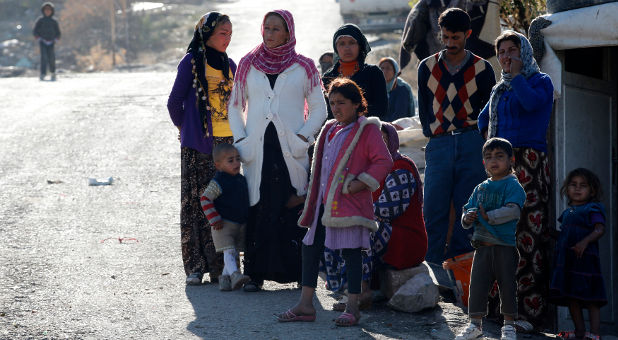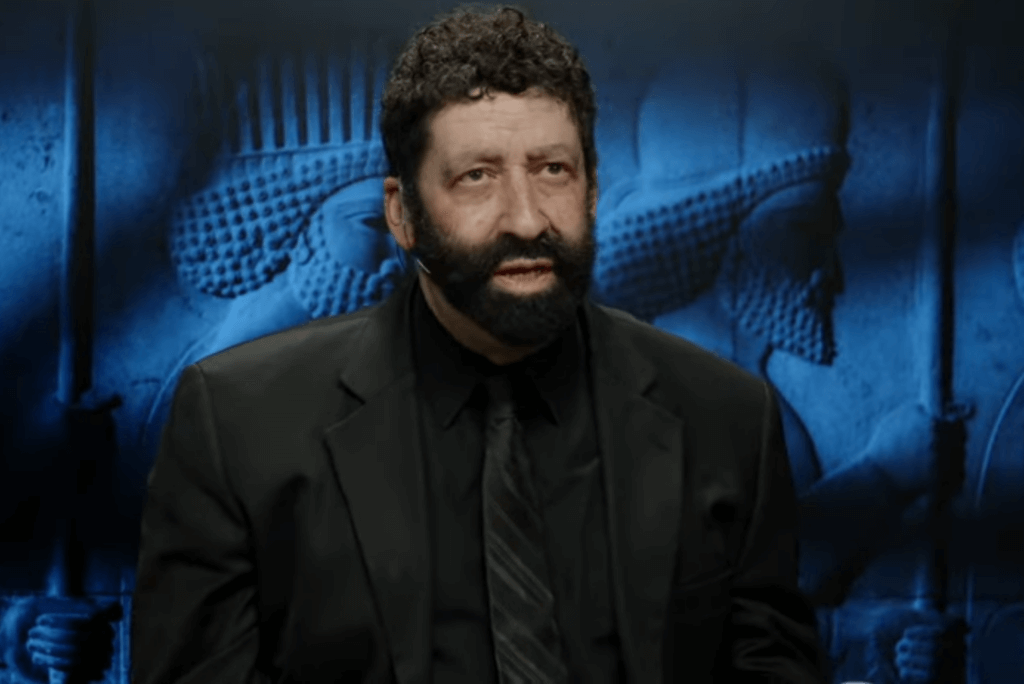The Syrian crisis is now 2 1/2 years old, and the damage of the conflict seems only to be worsening. Fueled by an increasing stream of jihadists with a stated goal of establishing an Islamic state, these groups have increasingly targeted the Christian community, forcing them to convert, flee or be killed. The impact of extremist ideology is tearing apart the richly diverse social fabric of Syria, impacting all Syrians but particularly targeting the Christians.
Though the uprising in Syria began primarily to end the brutal authoritarian reign of President Bashar Assad, for many in the opposition movement, the aim has become the creation of an Islamic state governed by a harsh interpretation of Islamic law and free of any Christian presence.
“For the terrorist people [foreign jihadist fighters], the first step in their aim is to kill the Christian or let them leave the country or let them become a Muslim,” Dawoud*, a Christian from Damascus, told International Christian Concern (ICC).
While the attacks on Christians originally were because some in the opposition movements viewed them as loyal to the Assad regime, the reasons have now largely shifted. Bashir Ishak Saadi, a leader of the Assyrian Democratic Organization in Syria, told MidEast Christian News (MCN), “The Islamic Nusra Front antagonizes Christians because of their neutral position on the regime of Bashar al-Assad, and asks them to oppose the system officially and participate in ousting it, or else their suffering will continue.”
As the war continues, the influence of these extremist groups is on the rise. As David Kenner at Foreign Policy documented in September, groups such as the Islamic State of Iraq and al-Sham and the al-Nusra Front, both known al-Qaida affiliates, have begun fighting with factions of the Free Syrian Army (FSA) because they did not feel the FSA was committed to their Islamist goals.
A coalition of some 50 groups have joined together to form a coalition known as the Army of Islam. Operating primarily around the capital city of Damascus, this Army of Islam rejected the Syrian National Council as too secular, “affirming that they view Islamic law as the sole source of legislation,” Hassan Hassan reports.
These political developments give context to the observations made by Huda Nassar, director of the Middle East for the U.K.-based Awareness Foundation. Nassar grew up in a Christian family in the coastal city of Lattakia, Syria. Her family has ties both to the Orthodox and Presbyterian churches in Syria.
Looking back over the history of Syria, Nassar observes that Christians have passed through difficult periods. Whether it was during the seventh century with the arrival of Islam or from Europeans during the Crusades or under the Ottoman Empire, “Christians were under enormous pressure because of their faith—but we have never been killed just for being Christian until the 21st century,” she told ICC.
“Now Christians are being persecuted, killed, tortured, kidnapped and pushed to leave their homes and cities just for being Christian,” she said.
Dawoud also agrees with this observation. “The recent events give big evidence that the Christians are being targeted,” he said, asserting that all across Syria, in the cities of Maaloula, Homs, al-Qusayr, Damascus and elsewhere, “they have threatened always the Christian areas.”
The violence has created one of the largest humanitarian crises in modern history and shows little evidence of slowing.
“This year alone, more than 1.5 million refugees have left Syria,” says António Guterres, U.N. high commissioner for refugees.
There are more than 2.1 million refugees outside the country and more than 4 million internally displaced persons still in Syria.
“It is so disappointing to see the international community sleepwalking into this disaster,” says Kristalina Georgieva, commissioner for the Humanitarian Aid and Civil Protection department of the European Commission. “This is undoubtedly the world’s worst refugee crisis in decades, and if we don’t get off this slippery slope, it will soon become the largest in our lifetime in front of our eyes!”
The violence has been destructive for all of Syria, but in many cases Christians are struggling more than most. They have been targeted by the Islamic extremists because of their faith, by the more secular opposition movements who say they are supporting Assad, and by the regime for not being loyal enough.
Many of the Christians who have fled are afraid to register in camps because they fear they will be further targeted, and so they have limited access to relief from international organizations. The number of Christians leaving has risen sharply. In an interview with MCN, Bashir Saadi said, “More than 40 percent of Christian Syrians emigrated outside their country.”
Dawoud, who was forced out of his home because the mortar attacks became too numerous, continues to stay in Damascus. He says, “Many of the Christians are moving from area to area inside Syria. When the danger comes, they move to other safe areas. When the danger becomes very close, they move again.”
As the violence carries on, more and more Christians are being pushed to leave and have lost the will to resist.
“For the first time, probably, in the history of the region, Christians are facing what we could call ‘religious cleansing,'” Nassar says.
The international community needs to confront the issue of Syria, and particularly the rise of Islamic extremism. While there are certainly no easy solutions, the protection of the country’s Christian community must be a part of the discussion.
There is a need to meet the urgent needs of the situation. The killing has claimed the lives of more than 100,000 Syrians. By some estimates, there are more than 4 million Syrians inside the country who lack food security. As winter approaches, these needs will only increase.
At the same time, the larger issues driving Christians out of the region also need to be addressed.
“If we allow the Christians to leave the country, then the whole dynamic and the social fabric of the society will change, and the region will be the poorer for its loss of diversity,” Nassar says.
Despite the chaos, some have chosen to stay. When ICC asked Dawoud why he has not left, he said, “What encouraged me to stay in Syria? Because I love my people. I want to stay with my people. I can’t leave them during suffering times.”
Despite the risks of staying, Dawoud and his family have been amazed by the opportunities they have had to impact the community around them, which is also hurting.
There is a need for more in Syria to carry on in this spirit. The international community needs to assist in fostering this attitude of love for all the people of this region that will bring an end to the violence.
*Names have been changed for security reasons.
Click here to learn more or to support ICC’s Syrian Refugee Relief project, which is working to provide aid for those both inside and outside the country.
See an error in this article?
To contact us or to submit an article






















